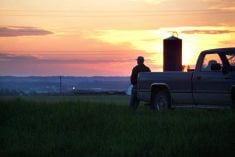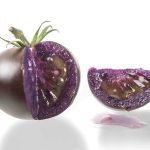About 15 minutes outside Thunder Bay, Henry Staal and his brother Gary operate Sunshine Sod Farms. You might call it their own field of dreams. Or maybe it should be Canada’s field of dreams.
The Staals’ father came to Canada from Holland in 1952, worked hard, saved, bought a farm in 1960, and then worked hard some more. Along the way, he taught his sons to dream, and then to let determination, discipline, and family strength carry them through.
These are the stuff of success — the humble, pragmatic Canadian dream.
Read Also

Producers aren’t panicking over tariffs and trade threats
The influence of tariff and trade uncertainity on farm business decisions.
Today, Henry and Linda Staal’s four sons are living another Canadian dream — excelling at hockey. So maybe it’s a rink of dreams.
Eric, 24, plays for the Carolina Hurricanes, Marc, 22, is on defense for the New York Rangers, Jordan, 20, teams up with Sidney Crosby in Pittsburgh and Jared at 18 years old plays junior hockey in Sudbury and already has played a few games in the American Hockey League.
It all started on a flooded part of a field turned ice pad. The boys loved skating so much Henry eventually built them a rink in their backyard where they spent the long winters playing and dreaming about being in the NHL.
“When you live on a farm you’re pretty isolated. The rink gave them something to do after school and they liked it,” says Henry.
Henry played varsity hockey at university and his love for the game rubbed off on his sons, although he didn’t push them.
“We just let the coaches coach and pretty much stayed out of it,” says Henry. “I told my boys to just play at the highest level they could and above all, enjoy it.”
Linda recalls taking five-year-old Jordan to get registered for hockey and how that evening while watching a hockey game on television he asked her a prophetic question. “He said, ‘Mom, you just signed me up for the NHL, right?’”
Henry insists that none of his kids were young hockey phenoms. They were just good athletes, loved the game and played hard.
It wasn’t until they got into travel hockey that they really started to develop as players. The switch was most profound with their their oldest boy, Eric. “Eric wasn’t a “Wow” player when he was a kid,” says Henry. “He was a good athlete but when he turned 15, things started to go.” Eric had a growth spurt that year and a good coach. The next thing the Staals knew, he was on track to the big leagues.
Since Thunder Bay is so remote, there isn’t a high-level travel team until players get a little older. The Staal boys played inter-city teams until they were 13 years old. The next year they played “AA” in the city, and then they travelled again as Major Midgets on a “AAA” team.
As hockey parents know, travel team hockey is a major commitment — driving, time and money. One year the Staals had all four boys playing on “AAA” teams. “We figured that we spent roughly $5,000 to $6,000 per kid. That year hockey cost our family about $25,000,” says Henry.
They didn’t make an extra mortgage payment, laughs Henry, but somehow they managed it. Instead of winter holidays on the beach, they chose minor hockey.
“It was worth it and it would have been worth it even if the boys didn’t go on to play professionally,” says Henry. “I enjoyed the games, and enjoyed the social aspects and the kids liked it.”
“We had two drivers for four kids, so that wasn’t too bad,” says Henry. “Within 20 to 25 minutes we could get to any arena in Thunder Bay.” Once they got old enough to be on travel teams, the driving increased — eight hours to Winnipeg, flying to Toronto.
The Staals have had their fair share of driving through snowstorms to get to hockey games. Henry remembers early one morning leaving with a group to drive Jordan to Winnipeg. The snow blew in and the highway was closed. These determined hockey dads decided to take a bush trail. Soon they got stuck and with the help of three 4×4 trucks and a rope were able to carry on.
Linda remembers the years when all four were playing competitive hockey. “Somebody would have something every night of the week,” she says, recalling those hectic days. “With their tight schedules, I swear some of them lived on cereal… well, at least they got milk.” It didn’t seem to stunt their growth — all her boys are over six feet tall.
Despite this level of involvement, the farm came first, especially in the summer and fall. Linda covered most of the driving from September until the sod season closed in November. “The month of October got pretty crazy,” remembers Henry.
The boys all worked on the farm. They didn’t have a choice. It was just part of life on their farm and everyone pitched in — driving tractor, cutting and moving sod. “When the work had to be done you did it and you tried not to complain too much,” says Henry. “They weren’t scared of having to go to work and they got paid a little just to be fair.”
The Staal boys were driving tractors at a young age and lugging sod during the summers. Life on the farm taught them not to be afraid of hard work, Henry says, and that things don’t come for free (although their Dad tried teasingly to convince them that carrying sod was like free off-ice training).
The boys went to a private christian school and had to keep up with their school work. Linda is thankful that her boys were all good students so they weren’t overwhelmed with homework. It made the juggling of hockey schedules much easier.
“They learned that there’s more to life than just hockey,” says their Dad. “Hopefully, a strong faith will hold them in good stead.”
That solid upbringing was tested early in their lives. At 15 or 16 years old, all four of their boys moved away from home to play junior hockey. Mark and Jared were drafted to Sudbury and Eric and Jordon were even further away in Peterborough.
“It was the hardest when Eric went,” says Linda. “We took all the boys with us for the try-outs and when he we had to leave him there, we were all crying.” She admits wondering if they were doing the right thing when she looked into her son’s crying eyes.
The Staals talked to their boys called every day. “Even if they didn’t have much to say they’d call and we’d talk for at least five minutes,” says Linda. That connection to family stays strong today and the boys come home during the summer, although they don’t work on the farm anymore.
As professional hockey players, her sons are making more money than the rest of us dream of winning in a lottery. Linda has a hard time comprehending it. “I’m thankful that they’re successful but I don’t like to think about that part.” She’s impressed that despite their sudden wealth, her boys think through their purchases wisely and don’t throw money away.
She says her boys still love playing hockey as much as they did when they when young. “When they were little you’d go into the dressing room to undo their skates and they’d be sitting their sweating and smiling.”
Those smiles of joy and excitement still pour out of Canada’s fab four farm boys during interviews or on YouTube videos. This honest charm is countered by their fierce determination and competitiveness on the ice.
Soon the smiles will be to celebrate another joy. Eric’s wife is pregnant and due in September. Henry might have to “reinstaal” the backyard rink again. Or maybe the family’s core drive and determination will take the next generation back into farming? CG
(Note: This article is dedicated to my 14 year old farm boy who eats, breathes and dreams hockey.)














